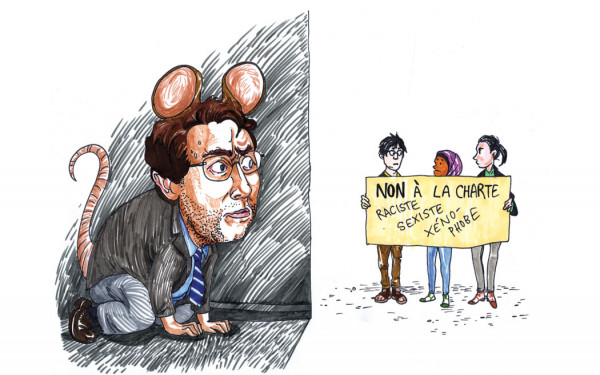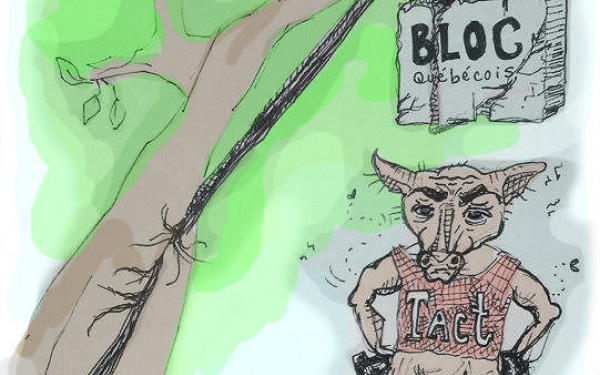Statement on the Charter of Quebec Values by Students in the Joint Doctorate in Communications
The proposed Charter of Quebec Values continues to polarize Quebec society and marginalize religious minorities.
Of special concern are the emerging reports of an increase in harassment and violence against visible religious minorities, particularly women.
The Regroupement des centres de femmes du Québec recently reported that following the announcement of the charter, they have received increased reports of physical and verbal attacks against Muslim women.
“Since the early debates of the proposed charter, women’s safety is compromised,” said the group’s president, Angèle Laroche, in a statement according to CTV News.
According to the National Post, the group reports that “women are being shoved, insulted, denigrated” and that “some have even been spit on in the face. The impacts of the debate over the charter are undeniable.”
The Muslim Council of Montreal has received reports that Muslims are increasingly targets of racial slurs and at least one physical attack, council president Salam Elmenyawi told The Montreal Gazette.
The psychological and social impacts of being made to feel an intruder in one’s own society are less tangible, but also important. The discriminatory effects of the proposed charter will not begin with its implementation (which is uncertain), but are already being felt as a result of statements and advertising from the government in support of the measure.
As communication studies students, we feel called on to stand against the deliberately xenophobic, polarizing rhetoric of the PQ’s public relations strategy.
For example, an advertisement placed in many Montreal metro stations reads “Église, synagogue, mosquée, tout cela est sacré; Neutralité religieuse de l’État, égalité hommes-femmes, c’est tout aussi sacré.”
This juxtaposition carries the message that religious minorities have an agenda to compromise the religious neutrality of the state and gender equality in society. It also indirectly makes the assertion that these objectives have already been realized, when Quebec society and the state itself are far from “equal” or “neutral.”
We also note that this publicity campaign cost $1.9 million dollars of public money, reported TVA Nouvelles.
The charter’s website gives examples of what is acceptable as discreet signs of religious affiliation, and what is considered overt and unacceptable. Included in the acceptable items is jewelry that symbolizes a religious affiliation; unacceptable items include turbans, large crosses, face coverings and yarmulkes.
The majority of unacceptable items belong to non-Christian religions, sending the message that religious minorities are a threat to Quebec’s supposedly neutral and secular society. The images serve to identify who are real Québécois, and who must erase their religious affiliation to remain employed.
The targeting of visible minorities by powerful, respected figures for political gain has undeniably emboldened violent and xenophobic elements of Quebec society. We call on the leadership of Concordia University, and all public leaders, to denounce this charter—regardless of whether it eventually becomes law—and its continuing impact on the dignity and safety of our colleagues and fellow community members.
Signatures
Mariam Esseghaier
Irene Serrano Vázquez
Holly Nazar
Krista Riley
Aviva Rotstein
Marie-Eve Lefebvre
Constance Carrier-Lafontaine
Samuel Thulin
Marilou St-Pierre
Patricia Audette-Longo
Eric Powell
Arwen Fleming
Magdalena Olszanowski
Alison Reiko Loader
Ashley McAskill







